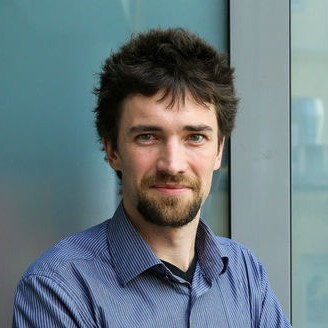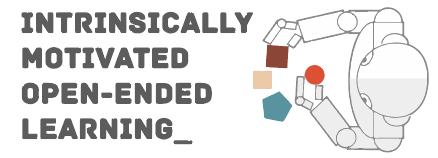 |
| Matej Hoffman |
| speaker |
Bio
Matej Hoffman received my MSc degree in Computer Science, Artificial Intelligence from Faculty of Mathematics and Physics, Charles University in Prague, Czech Republic, in 2006. Between 2006 and 2013 he completed a PhD degree and then served as Senior Research Associate at the Artificial Intelligence Laboratory, University of Zurich, Switzerland (Prof. Rolf Pfeifer). In 2013, he joined the iCub Facility of the Italian Institute of Technology (Prof. Giorgio Metta), supported by a Marie Curie Intra-European Fellowship (iCub Body Schema, 2014-2016). In 2017, he joined the Department of Cybernetics, Faculty of Electrical Engineering, Czech Technical University in Prague where he is currently serving as Associate Professor and leading a group focused on cognitive, neuro-, collaborative, and humanoid robotics.
In his research focuses on the synthetic methodology (“understanding by building”), in order to contribute to the understanding of cognition and the development of human-robot interaction.
Google scholar page
Talk
In older children like preschoolers, specific experiments can be designed to demonstrate that they actively explore - for example, they search longer when there is more information to be gained (Ruggeri et al., Dev. Science 2013). Such experiments are typically carefully designed abstract symbolic-like games, where sequences of discrete events manifest the exploration strategies. Early infant development is largely sensorimotor. In this talk, I will present our data on spontaneous behavior of 3-8 month-old infants and ask how we can tell apart motor noise from exploratory behavior (see also Gliga, Front. Psychology 2018). Can behavioral data only - like specific kinematic profiles or patterns in the movement sequences - be sufficient to shed light on the underlying mechanisms?
In the second part of the talk, I will show some computational models of active body exploration (e.g., Mannella et al. 2018; Gama et al. 2023) and discuss their assumptions. For example, typical computational models of intrinsically motivated learning need internal generation of goals on the part of the artificial agent to operate. It is not clear whether young infants use this mechanism to learn. More generally, I will open the discussion about the type of the learning problem (supervised, unsupervised, reinforcement learning) that can best explain early sensorimotor development.
